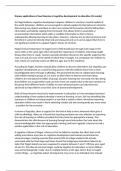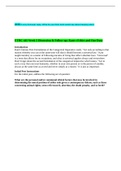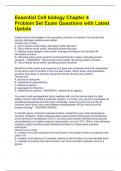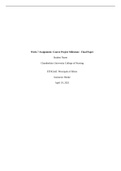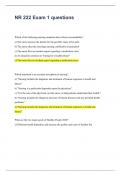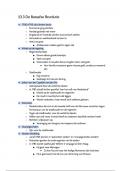Essay
2 essays for the topic of cognition and development for AQA A level psychology
- Module
- Cognition and development
- Institution
- AQA
2 16 mark essays for AQA A level psychology. one asks for applications of 2 theories of cognitive development to education whereby Piaget and Vygotsky is discussed. The other is about Baillergeon's research.
[Show more]
